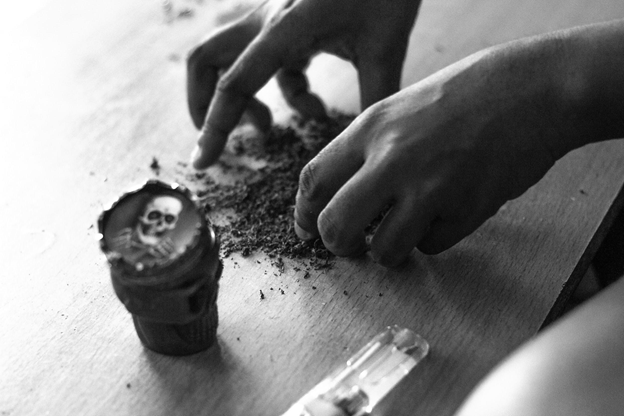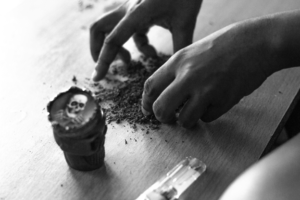One of the most critical topics surrounding addiction relates to the adverse effects of substance abuse on physical and psychological well-being. Drug addiction severely impacts an addict’s social health and well-being by damaging personal and professional relationships. Addicts often fail at keeping up with their social health, which refers to maintaining healthy contacts with people. This healthy support system starts to collapse when an addict loses their sense of success, self-esteem, and happiness due to alarming drug abuse.
Successful relationships are complex issues that demand a lot of work. The elements of a healthy connection include some of the following characteristics:
- Honest, open, and respectful communication
- Fun and rewarding activities
- A good balance of compromise, trust, and understanding
- Absence of abuse, violence, and aggression
- Contentment in individuality and togetherness
- Positive emotions of happiness
No matter what kind of substance an individual is addicted to, they can all put enormous strain on a person’s life by damaging their ability to keep up with the elements of a successful connection. All types of relationships – family, friends, romantic partners, coworkers, and others- start to fail when someone depends on harmful addictive substances. Here are some of the most common ways narcotics can affect personal and professional relationships:
Table of Contents
Toggle1. The Need To Keep Everything A Secret
When addiction enters the mix, individuals often tend to shut themselves down from interacting with the rest of the world. That’s because their dependence on substances instills strong feelings of guilt, shame, or fear of judgment in their hearts and minds. Addiction treatment specialists like the Delphi Health Group state that addicts believe others may fail to understand or accept their situation. Therefore, they stop being outwardly open about their addiction, which only fuels their tendency to be secretive. Most of the time, this desire to keep secrets from people develops into a continuous habit that leads addicts to distance themselves from the world entirely.
2. The Paranoia Surrounding Trust Issues
Secrecy eventually leads to increased lying and deception performed by addicts to the point that family members, friends, and other people start noting the differences. Usually, people living or working with the addict are the first to point out the changes in behavior and conduct. When loved ones question addicts about their newly adopted habits, they often lie, which gives birth to a cycle of ongoing trust issues.
Lying is perceived by other people as a lack of respect, breach of honesty, and exploitation of loyalty. Continued falsehood may result in people surrounding the addict developing deep-rooted trust issues. Since an addict’s brain might be utterly numb from drug abuse, they fail to comprehend the changing emotions of their loved ones. Intense feelings of mistrust severely damage relationships, leaving the addict alone.
3. The Expression Of Anger And Abuse
Living with an addict often puts people at greater risk of becoming victims of physical and mental abuse. Frustrations resulting from arguments, lying, and disagreements intensify into severe anger and violence. Expression of anger and violence is most common in addicts augmented by certain drugs they may be abusing.
Common drugs known to increase irritability and violence in humans include alcohol, cocaine, MDMA, meth, prescription stimulants, and steroids. Loved ones questioning an addict about their actions and behavior and suggesting or forcing changes only pushes their anger further over the edge, damaging relationships considerably in the process.
4. Choosing Between a Lover and An Enabler
An addict tends to fulfill most of their emotional and physical needs with drugs, leaving their partner and other emotional connections devoid of feelings of love, care, and attention. People’s failure to understand an addict’s addiction often leads them to transition from a lover into an enabler. The role of an enabler comprises activities like:
- Feeling responsible for the negative behaviors of an addict
- Working hard to sort relationship problems
- Accepting blame to keep the communication going
- Making excuses to stay around the addict for more extended periods
- Saying yes to unwanted and unnecessary actions for the sake of love
All these actions are examples of how people continue to fuel their loved one’s addiction by failing to apply force or coercion. The role of an enabler is challenging to keep up with and often results in people breaking up with an addict or leaving them alone in difficult times.
5. The Transition Of Loving Relationships Into Codependency
Codependency is when one person needs the other person, who, in turn, feels the need to be needed. There are two roles in a codependent relationship – the giver and the taker. Addicts, more often than not, take up the role of a taker, forcing the giver to make sacrifices for them constantly.
These relationships always fail in the long term as the giver often tends to give up on their compulsive need to take care of the addict when pushed too far. The tipping point comes when the addict stops approaching the giver as a caretaker because various drugs and substances fulfill their needs. As a result, the giver experiences feelings of detachment and often calls it quits.
Conclusion
Understanding how drugs affect personal and professional relationships can help people determine if they’re experiencing the same. Maybe this knowledge can help people identify addictive behavior and connect addicts to the help they need. If these situations are addressed timely and effectively, there may still be a chance addicts can take control of their lives and save their corroding relationships.










